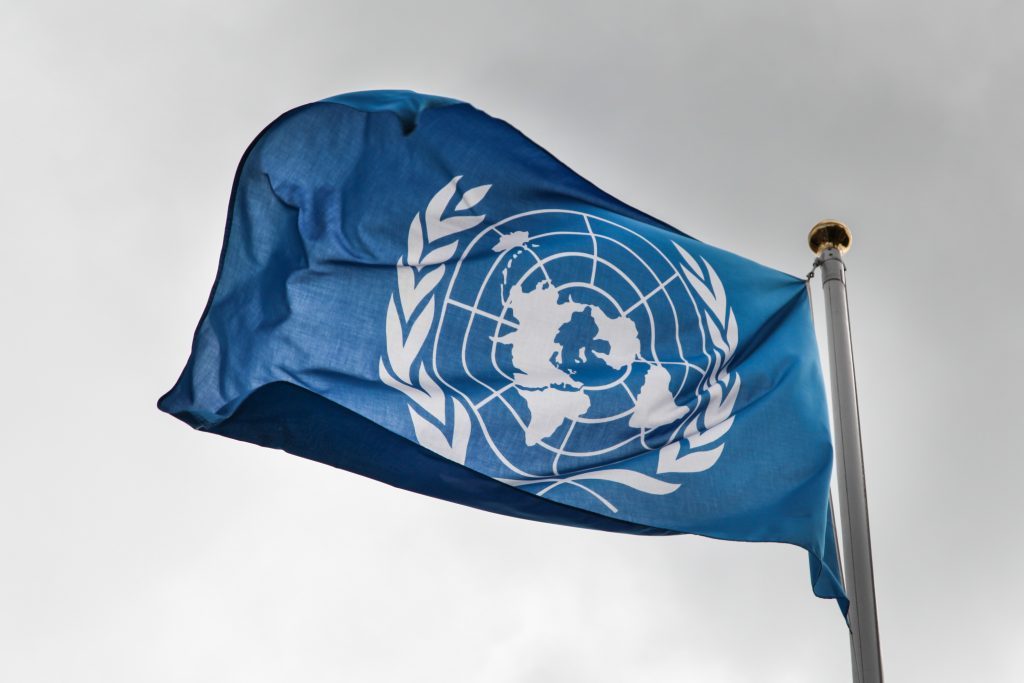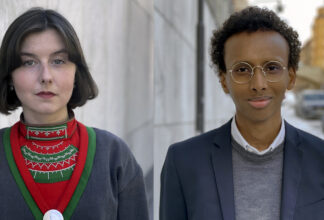Lack of protection against hate crimes, discrimination, and for indigenous rights – our shadow report to the UN

In the spring of 2025, the UN will review how Sweden respects human rights. Ahead of the review by the UN Human Rights Council, Civil Rights Defenders has submitted a shadow report highlighting serious shortcomings in the protection against hate crimes and respect for indigenous peoples’ rights. In several areas, we see a regression in the protection of human rights, particularly regarding migrants’ rights.
In our shadow report, supported by seven other organisations, we describe the human rights situation in Sweden and list recommendations for necessary improvements. We criticise Sweden for insufficient protection of human rights across several areas, particularly regarding hate crimes and racism, discrimination, the rights of migrants and asylum seekers, and Indigenous peoples’ rights.
“We see serious shortcomings in the protection of human rights in Sweden. The situation is better than in most other countries, but human rights can never be taken for granted, and Sweden needs to take greater responsibility” says John Stauffer, Legal Director and Acting Executive Director at Civil Rights Defenders.
Sweden needs stronger protection against hate crimes and hate speech. Currently, hate crime legislation is applied too narrowly and not in line with its intended purpose, making it difficult for those subjected to hate crimes to seek justice. The law needs to be applied more broadly and should place incidents of hate speech within a wider context. We also see that the police lack sufficient resources to effectively investigate hate crimes across Sweden.
Discrimination remains a serious human rights issue in Sweden. Reports indicate that ethnic and racial profiling occurs in police work, meaning that individuals are stopped and checked based on factors such as ethnicity, skin colour, or religion. However, discriminatory measures by the police are not covered by the Swedish Discrimination Act, meaning it is practically impossible to seek redress if one has been subjected to, for example, a discriminatory police check.
“Despite repeated criticism from the UN for not addressing hate crimes and racism, too little is being done to strengthen protection against hate speech and discrimination. Swedish hate crime legislation needs to be applied more broadly, and anti-discrimination laws should be extended to cover police actions” says John Stauffer.
We also observe a lack of respect for indigenous peoples’ rights. Today, the Sámi people do not have sufficient influence over decisions affecting their traditional lands. Their involvement in decision-making processes must be guaranteed both in legislation and in practice.
In several areas, we also see a regression in the protection of human rights. This is especially evident regarding the rights of migrants and asylum seekers, as new legislation risks undermining their access to fundamental rights.
What does Sweden need to do?
In the shadow report, Civil Rights Defenders lists 30 recommendations for Sweden, with specific calls for action to strengthen the protection of human rights. Among other things, we urge Sweden to:
- Introduce a prohibition against discriminatory measures by the police in the Discrimination Act.
- Adjust the wording of the provision criminalising hate speech in the Swedish Criminal Code to clarify that the context in which the speech was delivered will affect the assessment of whether the speech constitutes hate speech.
- Guarantee, both in law and in practice, the free, prior and informed consent of the Sami in all decisions affecting them.
- Abolish the use of solitary confinement of children in pretrial detention and prohibit the use of coercive measures in the form of isolation and restraining of children in compulsory care.
- Conduct a thorough review of the proportionality and compounded effects of the new legislation introduced in the area of secret and preventative secret surveillance, to ensure protection of the right to integrity of the person.
- Refrain from adopting legislation which would impede the equal access for migrants to services essential for the realisation of their human rights, including health care, education, and access to justice.
Here you can read our shadow report containing all our recommendations for Sweden.
Questions and Answers
Why is Sweden being reviewed by the UN?
The review is part of the UN’s Universal Periodic Review (UPR). It is conducted by the UN Human Rights Council, which monitors how UN member states – including Sweden – uphold human rights. Each country is reviewed every four or five years. Sweden has previously been reviewed three times, in 2010, 2015, and 2020.
How is the review conducted?
The review consists of a hearing at the Geneva UN Human Rights Council headquarters. The next hearing will take place in May 2025. It begins with Swedish government delegates presenting how Sweden complies with its human rights commitments. This is followed by a dialogue between the Human Rights Council and Sweden, during which Sweden receives critique and recommendations on areas needing improvement.
Prior to the hearing, the Swedish government submits a report to the UN about the country’s human rights situation. Alongside the government’s report, civil society actors are also allowed to submit shadow reports to describe their view on how Sweden lives up to its international commitments, including the UN’s core conventions. The UN Human Rights Council takes these reports into account as it conducts its review.
What criticism has Sweden received from the UN in the past?
When Sweden was reviewed by the UN in 2020, it received 300 recommendations. These included that Sweden must ratify the ILO Convention on Indigenous and Tribal Peoples, strengthen efforts against racism and hate crimes, and combat discrimination.


